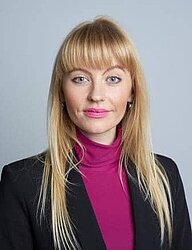Communication Science - Bachelor's Degree Programme
Programme level: Bachelor's Degree Programme
Language of instruction: Latvian
Study form and duration: full-time - 6 semesters, part-time - 7 semesters
Credits: 180 ECTS
Obtainable degree or qualification: Bachelor's Degree of Social Sciences in Journalism and Communication
Number of students accepted each year: Full time state-funded study places - 18, study places for tuition fee - 130. Part-time state-funded study places - 0, study places for tuition fee - 50.
Tuition fee per year (ac. year 2025/26): full-time - 2800 EUR for EU/EEA/Swiss citizens, permanent residence permit holders and their family members. 3700 EUR for citizens of other countries. Part-time - 2200 EUR for EU/EEA/Swiss citizens, permanent residence permit holders and their family members. 3300 EUR for citizens of other countries.
Study location: Riga, Latgale suburb
The study programme is dedicated to educating specialists with knowledge and skills in communication and media analysis. The students learn to understand communication processes, critically evaluate and analyse them, and most importantly – to create and influence them. The study programme “Communication Science” has 2 sub-programmes: Business communication and Media studies. Specialisation in one of them begins starting with the 3rd (full-time students) or 4th (part-time correspondence – distance learning students) semester.

The video cannot be viewed because you have not selected functional cookies.
To view the video, please enable functional cookies in your cookie settings.
Study Program Director

Doc. Laura Ardava-Āboliņa
In the 1st year, the students acquire basic knowledge of theories of communication, media and culture, the history of their formation, as well as topical changes, the operational principles of science and research, the challenges of the contemporary environment, new media formats. The students also improve their language proficiency and writing skills.
In the 2nd year, the students specialise in study field of their choice – journalism, advertising, corporate communication or multimedia studies, getting to know the specifics of these fields, the principles of theory and practice.
In the 3rd year, the students apply the acquired knowledge in practice, trying their hand in an actual work environment – creating and implementing their own projects and ideas, while new knowledge is amassed by developing a bachelor's thesis.
Part-time correspondence studies (distance learning) ensure acquisition of the same knowledge and skills in the same logical sequence, only over a longer period of time.
HOW ARE THE STUDIES LINKED WITH PRACTICE?
The programme includes an internship (for full-time students – in the 6th semester, for part-time correspondence students – in the 7th semester) in the sub-programme of their specialisation. During the internship, students work in leading media, companies and institutions, engaging in the development of a specific project.
Career opportunities after graduation are extensive – in Latvian and international public relations and advertising companies, television, radio, press and Internet media, state, municipal and private company departments, which ensure communication with partners, customers and the public.
General conditions
Completed secondary education
Competition criteria for persons who have acquired secondary education from 2004:
CE in Latvian language
CE in English or CE in French, or CE in German
CE in mathematics*
Average score of all CE passed by the person
* For persons who have completed secondary education before 2008, the centralized examination (CE) in mathematics may be replaced by the annual grade in mathematics indicated in the secondary education document (or the average grade in algebra and geometry)
Competition criteria for persons who have completed secondary education up to 2004 (excluding), as well as for those who have acquired secondary education abroad, or persons with special needs:
annual average grade in Latvian language and literature
annual grade in English or French or German language
annual grade in Mathematics (or average grade in Algebra and Geometry)
annual average grade in mandatory subjects
Additional points: The 1st-3rd place winners of the School of Young Communicators of LU SZF in 2022 and 2023 receive additional points: 1st place winners receive 100 points, 2nd place winners - 75 points, 3rd place winners - 50 points.
During a single cycle of studies, students have the opportunity to spend up to 12 months abroad for studies or internships. Currently, the Faculty of Economics and Social Sciences has over 320 Erasmus+ cooperation agreements with universities across Europe and beyond. Students can participate in exchange studies in countries such as Austria, Germany, Spain, Italy, Finland, Sweden, Turkey, Portugal, Slovakia, Malta, and many others.
In addition, students may take part in exchange programmes based on bilateral agreements, which allow for study opportunities in 53 countries worldwide — including Japan, South Korea, Taiwan, and more.
Short-term mobility options are also available through the FORTHEM Alliance, offering students the chance to gain new knowledge and skills in Germany, Poland, Norway, Romania, Italy, France, Finland, and Spain.
Graduate reviews
“I have the best memories of FSS. It was the first place after secondary school where we were treated like adults – made me absorb all the events around me like a sponge, work with this information, evaluate, analyse and draw conclusions. This accompanies me every single day in journalism.”

“This study programme is very forward-looking. We had the opportunity to study in Germany for a month, practice in major German televisions and get a grasp of Western journalism. It also gave me a first insight into Western business thinking, which later helped me in my work. Altogether, communication studies are very versatile and the knowledge gained during the studies is useful not only in journalism or public relations, but also for a career in marketing.”

“I would certainly recommend these studies, not just for the sake of paper, but really because it gives you a frightful discipline. I also would definitely advise not to be afraid that you might be taking wrong decisions or that the study course is not the right one for you. Because there is definitely something you can get out of it all. I can decidedly say that I am doing what I like now.”


 CONFERENCE
CONFERENCE